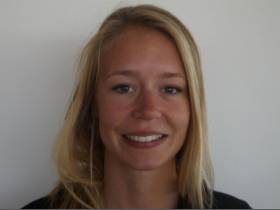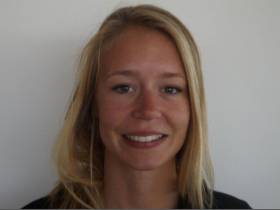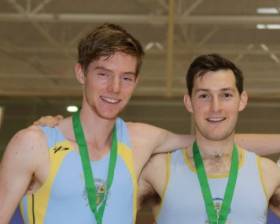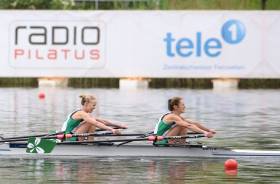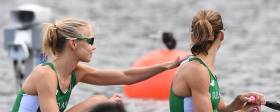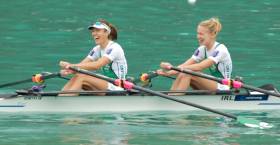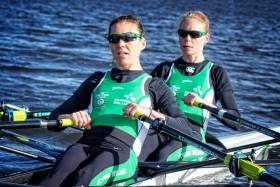Displaying items by tag: Claire Lambe
Annalise Murphy, Sanita Puspure, Claire Lambe and the rest of the Team Ireland Athletes’ Commission are calling on all Olympians, past and present, and high performance athletes on their sports national team (both junior and senior) to join them for a social event to discuss the importance of 'Enjoying the Journey'.
The event at the Sport Ireland Campus in northwest Dublin on Wednesday 14 December will also serve as an official launch of the Athletes’ Commission Strategy for 2022-2024, with details of the related activities, supports and actions to be announced.
The event will be an interactive event, aimed at creating engaging discussion around the various challenges and opportunities for high performing athletes, and the importance of remaining focused at all times on finding enjoyment and happiness in the steps along the way.
MC David Gillick (Olympian and former Athletes' Commission member) will guide two panel discussions around the topic, touching on key points such as how to celebrate success, and tips and advice from the experienced Olympians in the room.
The event will be brought by the Athletes' Commission who are: Shane O’Connor (chair), Natalya Coyle (vice chair), Olympic sailing hero Annalise Murphy, Olympic rowers Sanita Puspure and Claire Lambe, Brendan Boyce, David Harte and Paddy Barnes, most of who will be present on the day.
Keynote speaker will be Olympic bronze medallist in boxing from Tokyo, Aidan Walsh. In addition, Team Ireland chef de mission for Paris 2024, Gavin Noble — a former Olympian and former Athletes' Commission member — will present on the Paris plans.
Places will be limited so early registration is advisable. Qualifying athletes should email [email protected] for for the registration link.
Olympic Rowers Join Annalise Murphy on OFI Athletes’ Commision
Olympic sailing silver medalist Annalise Murphy is joined by fellow Olympians, rowers Sanita Puspure and Claire Lambe in the latest Olympic Federation of Ireland (OFI) Athletes’ Commission.
The three are among eight athletes elected from a list of 13 for the commission’s 2022-24 term, as the OFI announced today.
All Irish Olympians were eligible to vote in an online platform for seven of the commission’s spots, with Ireland’s sole winter sport candidate Shane O’Connor automatically elected, as previously reported on Afloat.ie.
The regulations made allowance for a minimum gender balance of 40%. However, the election produced a 50/50 gender balance without need to invoke such mechanisms.
Murphy finished 18th overall in the Laser Radial at Tokyo 2020 last summer, and has since called time on her Olympic sailing career.
Also in Tokyo, Puspure reached the B final of the women’s single scull before withdrawing due to illness.
And before her retirement from international competition ins 2018, Lambe was a finalist in the women’s lightweight double sculls at Rio 2016.
The three women and O’Connor will sit alongside race walker Brendan Boyce, boxer Paddy Barnes, hockey international David Harte and modern pentathlete Natalya Coyle in the latest formation of the commission.
OFI president Sarah Keane congratulated the successful candidates and thanked all those who applied.
“We are confident that the athlete voice will be represented well and that you will continue to drive sport forward, each of you bringing with you a wealth of experience,” she said.
“I also want to thank the outgoing Athletes’ Commission who have worked really hard in important areas in sport, from athlete welfare and representation on decision making groups, to driving initiatives that Irish athletes wanted to back, such as anti-doping and tackling racism and discrimination.
“You have given this new commission a very solid point from which they can start.”
The outgoing OFI Athletes’ Commission was appointed in 2017, and consisted of Shane O’Connor (chair), Gavin Noble (vice chair), David Harte (also a member of the EOC Athletes’ Commission), David Gillick (also an athlete representative in Sport Ireland anti-doping initiatives), Kenneth Egan, James Nolan, Melanie Nocher and Judy Reynolds.
Over the coming weeks the new OFI Athletes’ Commission will meet informally, in a virtual setting, and will hold its first official meeting soon after.
Lambe Makes History as Cambridge Win Boat Race
#Rowing: Claire Lambe became the first Ireland international to win a women's Boat Race today. The Olympic oarswoman was in the three seat of the Cambridge boat which defeated Oxford easily in a race dominated by Oxford’s awful start. Their number four woman, Rebecca Esselstein, could not clear the water with her oar at the start and by the time the crew recovered the race was gone. Cambridge started well and won much as they liked.
They set a new record for a women’s crew (18 minutes 34 seconds) since the women’s race moved to London three years ago. The Cambridge coach, Rob Baker, is the former Ireland under-23 coach. “They were ruthless in the way they executed today,” Baker said.
Claire Lambe in Cambridge Crew for Boat Races
#Rowing: Claire Lambe has been named in the Cambridge crew for the Women’s Boat Race on April 2nd. The Dubliner (26) will row in the number three seat for the light blues. Lambe represented Ireland at the Olympic Games in 2016, partnering Sinead Lynch in the lightweight double which reached the A Final.
Cambridge, who were beaten by Oxford in the last two years, have a very strong crew with a marked international aspect. “It’s the best crew we’ve had,” said Rob Baker, the Cambridge coach. Baker is a former Ireland under-23 coach.
Stars to Shine at Indoor Rowing Championships
#Rowing: The entry for the Irish Indoor Rowing Championships on Saturday (January 21st) at the University of Limerick is over 200 up on last year, a new record for the event. There are 1202 entrants from 115 clubs, 63 of them Rowing Ireland clubs. There are over 40 entrants from overseas, with 39 from the United Kingdom. Races will run every five to 10 minutes and there are 1663 race slots in total. The event is compulsory for high performance rowers and Ireland Olympians Paul and Gary O’Donovan, Claire Lambe and Sanita Puspure are entered. There is no charge for spectators.
O'Brien and Lambe in Cambridge Boat Race Squad
#Rowing: Claire Lambe and Sally O’Brien have been named in the Cambridge University women’s squad for the Boat Races. Lambe, who started rowing with Commercial, has represented UCD and Old Collegians. She competed for Ireland at the 2016 Olympic Games, partnering Sinéad Lynch in a lightweight double which reached the A Final. Sally O’Brien, who started rowing in Neptune, competed for Trinity and was captain of Dublin University Boat Club in 2014/2015. She played Gaelic Football at underage level.
The men’s and women’s Boat Races are on April 2nd. The chief coach of Cambridge University Women’s Boat Club is Rob Baker, the former Ireland under-23 coach.
Irish Women Sixth in Olympic Rowing Final
#Rowing: Sinead Lynch and Claire Lambe finished sixth in the Olympic final of the lightweight double sculls in Rio de Janeiro.
The Ireland crew needed to be strong in the middle 1,000 metres, but the race got beyond them, and they could not hold on to the leaders. The Netherlands won gold. They started well and were in the leading group of three with South Africa and the China. As they other two faded, the Netherlands pushed on and held off a challenge by Canada, who took silver, with China third.
Olympic Games Regatta, Rio de Janeiro
Men
Lightweight Double Sculls: B Final (places 7 to 12): 1 Britain (W Fletcher, R Chambers) 6:28.81.
Single Sculls - Semi-Final (Three to A Final; rest to B Final):
4 Britain (A Campbell) 7:09.54.
Women
Lightweight Double Sculls - A Final:
Netherlands 7:04.73, 2 Canada 7:05.88, 3 China 7:06.49; 6 Ireland (C Lambe, S Lynch) 7:13.09.
Lynch and Lambe Cruise to Olympic Semi-Finals
#Rowing: Ireland's Sinead Lynch and Claire Lambe have qualified for the A/B Semi-Finals of the lightweight double sculls at the Olympic Games. The Ireland crew finished a comfortable second behind South Africa, the second seeds, who led down the course. Cuba and Brazil were the only threats to Lynch and Lambe, but were well behind at the end.
Britain's Kat Copeland and Charlotte Taylor finished fifth in the first heat.
Olympic Games Regatta, Rio de Janeiro (Irish interest; selected results)
Women
Lightweight Double Sculls - Heats (First Two to A/B Semi-Finals; rest to repechages): Heat One: 1 China 7:00.13, 2 Denmark 7:01.84. Heat Two: 1 Netherlands 6:57.28, 2 New Zealand 7:02.01.
Heat Three: 1 South Africa 7:07.37, 2 Ireland (C Lambe, S Lynch) 7:10.91; 3 Brazil 7:20.79, 4 Cuba 7:26.43, 5 Tunisia 7:43.33.
Heat Four: 1 Canada 7:03.51, 2 Poland 7:05.02
Driven Irish Win B Final in Lucerne
#Rowing: Ireland’s lightweight women’s double won the B Final emphatically at the World Cup Regatta in Lucerne this morning, placing seventh at this prestigious regatta. The crew of Sinéad Lynch (née Jennings) and Claire Lambe had come very close to taking an A Final place. They dominated this B Final. The race was quite close early on, but Ireland took control before half way and carved out a clear water lead. Poland were second and Britain third.
World Cup Regatta, Lucerne, Switzerland (Irish interest; selected results)
Men
Lightweight Pair – A Final: 1 Britain (J Cassells, S Scrimgeour) 6:31.03.
Women
Lightweight Double Sculls – B Final (Places 7 to 12): 1 Ireland (C Lambe, S Lynch) 7:01.36, 2 Poland 7:03.01, 3 Britain 7:04.88.
Lynch and Lambe Denied A Final Place by Half a Second
#Rowing: Ireland’s Sinead Lynch and Claire Lambe just missed out on an A Final place at the World Cup Regatta in Lucerne today. The lightweight double semi-final was a good race – only Canada looked certain of a top three spot going into the final sprint and they won. Denmark finished well and took second, with China Two just taking the crucial third spot ahead of Ireland. The margin was just .43 of a second.
World Cup Regatta, Lucerne, Switzerland (Irish interest, selected results)
Women
Lightweight Double Sculls – Semi-Finals (Three to A Final; rest to B Final) – Semi-Final One: 1 New Zealand 7:01.10, 2 South Africa 7:01.16, China One 7:03.37.
Semi-Final Two: 1 Canada (L Jennerich, P Obee) 6:58.88, 2 Denmark 7:00.91, 3 2 China Two 7:01.80; 4 Ireland (C Lambe, S Lynch) 7:02.23.



























